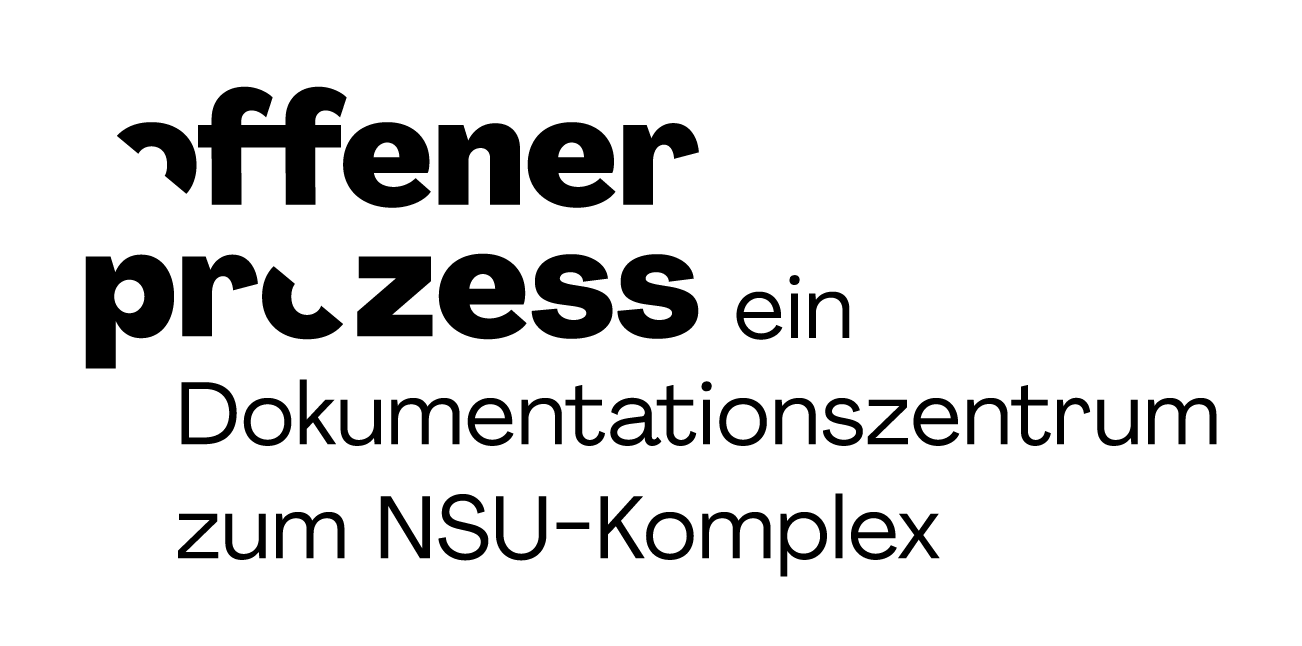«Pilotvorhaben für ein Dokumentationszentrum zum NSU-Komplex in Sachsen»: a space where past, present and future are folded together
A space where past, present and future are folded together: the «Pilotvorhaben für ein Dokumentationszentrum zum NSU-Komplex in Sachsen»
Between 2000 and 2007, ten people were murdered by the National Socialist Underground. Many more were injured in bomb attacks and robberies. To this day, the NSU remains only partially investigated, leaving families and friends without answers as to why the victims were targeted and killed. As early as 2006, the families of the NSU’s victims were convinced of a connection between the then nine murders that had been committed. Joined by hundreds of others at a protest in Kassel to prevent further murders («No 10th victim!»), they called on the police to consider racism as a motive. Yet despite the knowledge and evidence they had gathered, the families were ignored. Racist media reporting and investigations framed them as criminals, suggesting they were complicit in the crimes.
Many of the atrocities committed by the NSU remain unprosecuted, and investigations have failed to fully expose the network. Although three of the perpetrators of the self-proclaimed NSU disclosed their identities in 2011, networks of perpetrators continue to exist.
The public needs a space for hope: a space where we can foster societal change, solidarity and collective (un)learning.
The public needs a space for hope: a space where we can foster societal change, solidarity and collective (un)learning.
The voids left behind by the failure of state institutions and the widespread culture of ignorance are painful to bear, especially for the victims of the NSU and their families. It is only thanks to their commitment, strength and protest that we are seeing ongoing investigations. What we need, however, is for society as a whole to take responsibility. We cannot simply draw a line under these crimes.
It is for this reason that we want to establish a space of commemoration and remembrance – a space at the juncture of past, present and future that will allow us to learn from the flawed investigations as we move towards a postmigrant society. The public needs a space for hope: a space where we can foster societal change, solidarity and collective (un)learning.
Building on the previous efforts of various parties, the project partners – RAA Sachsen e.V., ASA-FF e.V. and the Initiative Offene Gesellschaft e.V. – plan to create an «Pilotvorhaben für ein Dokumentationszentrum zum NSU-Komplex in Sachsen». In its coalition agreement signed in 2019, Saxony’s state government has pledged to support such an initiative.
The «Pilotvorhaben für ein Dokumentationszentrum zum NSU-Komplex in Sachsen» is one of the initiatives that will be part of the programme to celebrate Chemnitz as European Capital of Culture 2025. This gives Chemnitz and the surrounding region the opportunity to also engage with challenging aspects of its society’s past and present. At the same time, the visibility generated by Chemnitz’s status as European Capital of Culture will help to raise awareness of the NSU internationally.
The «Pilotvorhaben für ein Dokumentationszentrum zum NSU-Komplex in Sachsen» will comprise an exhibition titled «Offener Prozess», a research unit, an archive, educational and creative programmes, events and a space of commemoration and remembrance called the Assembly.
The exhibition «Offener Prozess» will explore the history of the NSU against the backdrop of life in east Germany, with a particular focus on Saxony. Building on the (hi)stories of migration and tracing both the continuities of and resistance against right-wing and racist violence, the works are a reflection of the victims’ lives, their struggles, their deaths, their grief and their world views. Striving to make commemoration a lived experience, the exhibition brings marginalized perspectives to the fore.
Structural and institutional racism will also be addressed, thus creating a narrative that interweaves the history of the NSU with histories of migration while highlighting both the continuities of and resistance against right-wing and racist violence.
The Assembly is more than just a commemorative space, as it will also facilitate encounters for victims of right-wing violence. The barrierfree spaces will be available to local associations, youth education and empowerment projects, as well as self-organised initiatives. We also want the Assembly to boost public engagement with the Centre’s other units.
The Assembly will empower victims in confronting their trauma and will serve as a crucial hub connecting various activities of the «Pilotvorhaben für ein Dokumentationszentrum zum NSU-Komplex in Sachsen». The Assembly and exhibition spaces will also be multifunctional, making them an ideal environment for educational projects, interventions as well as cultural and discussion events.
